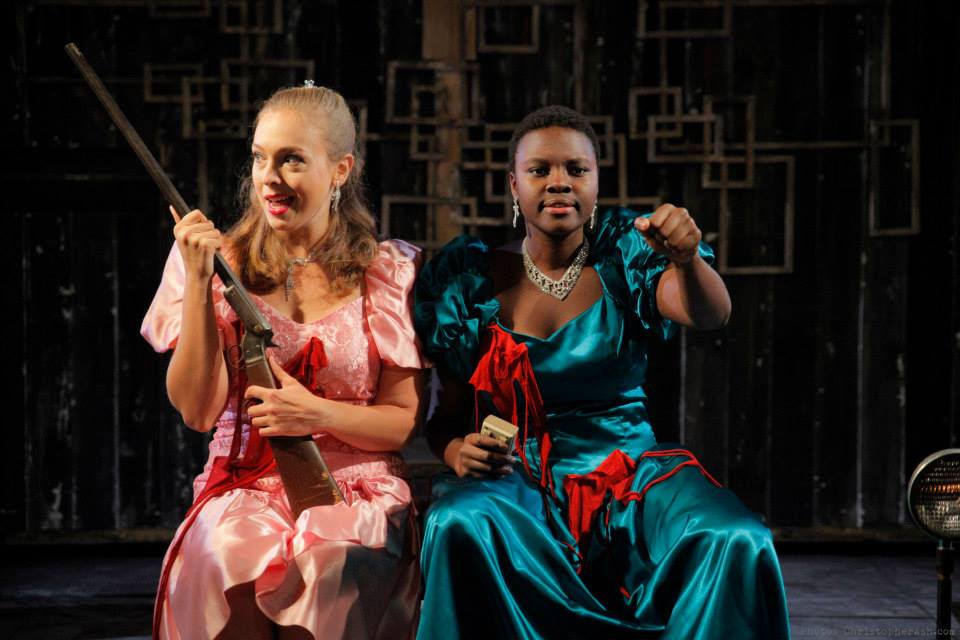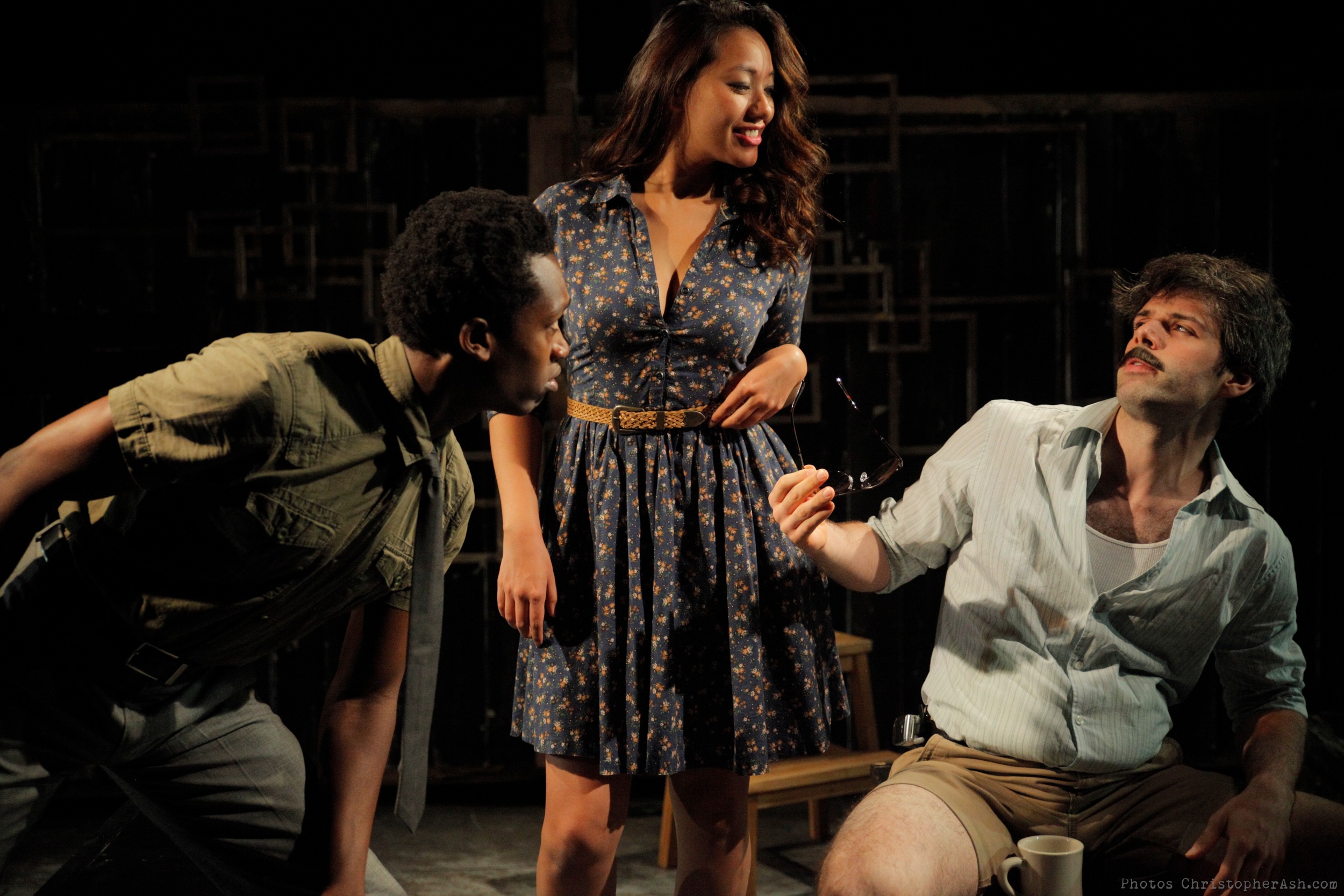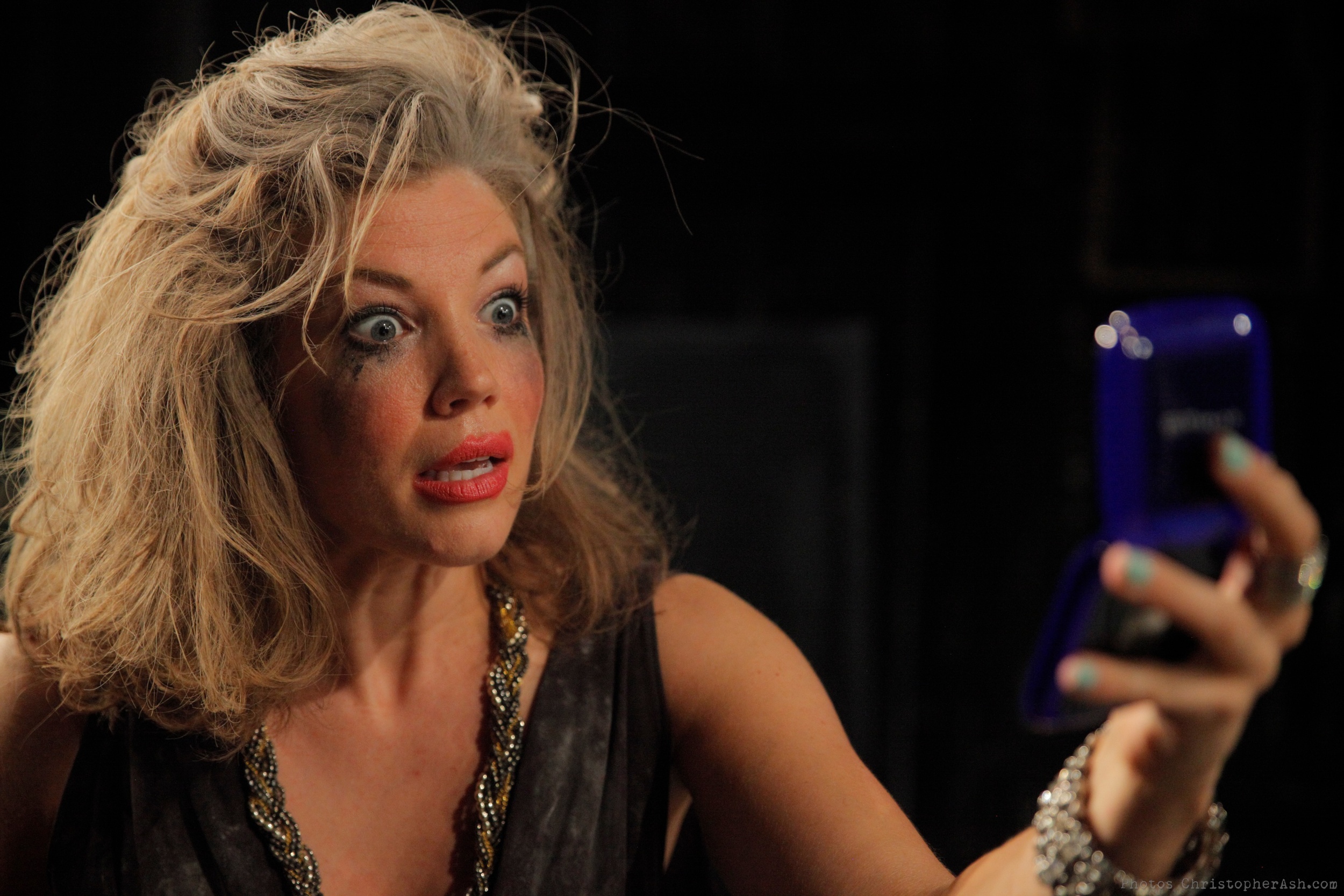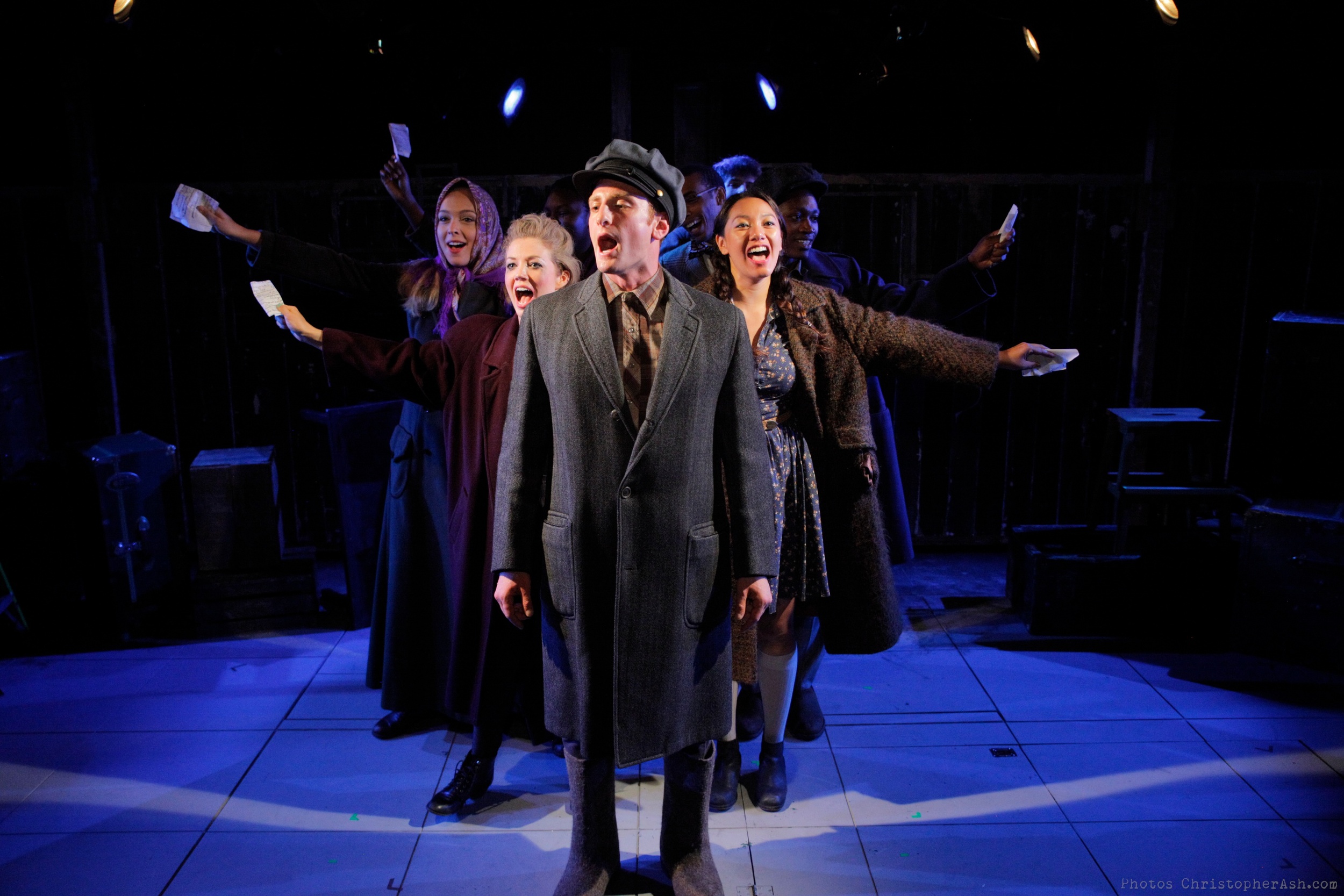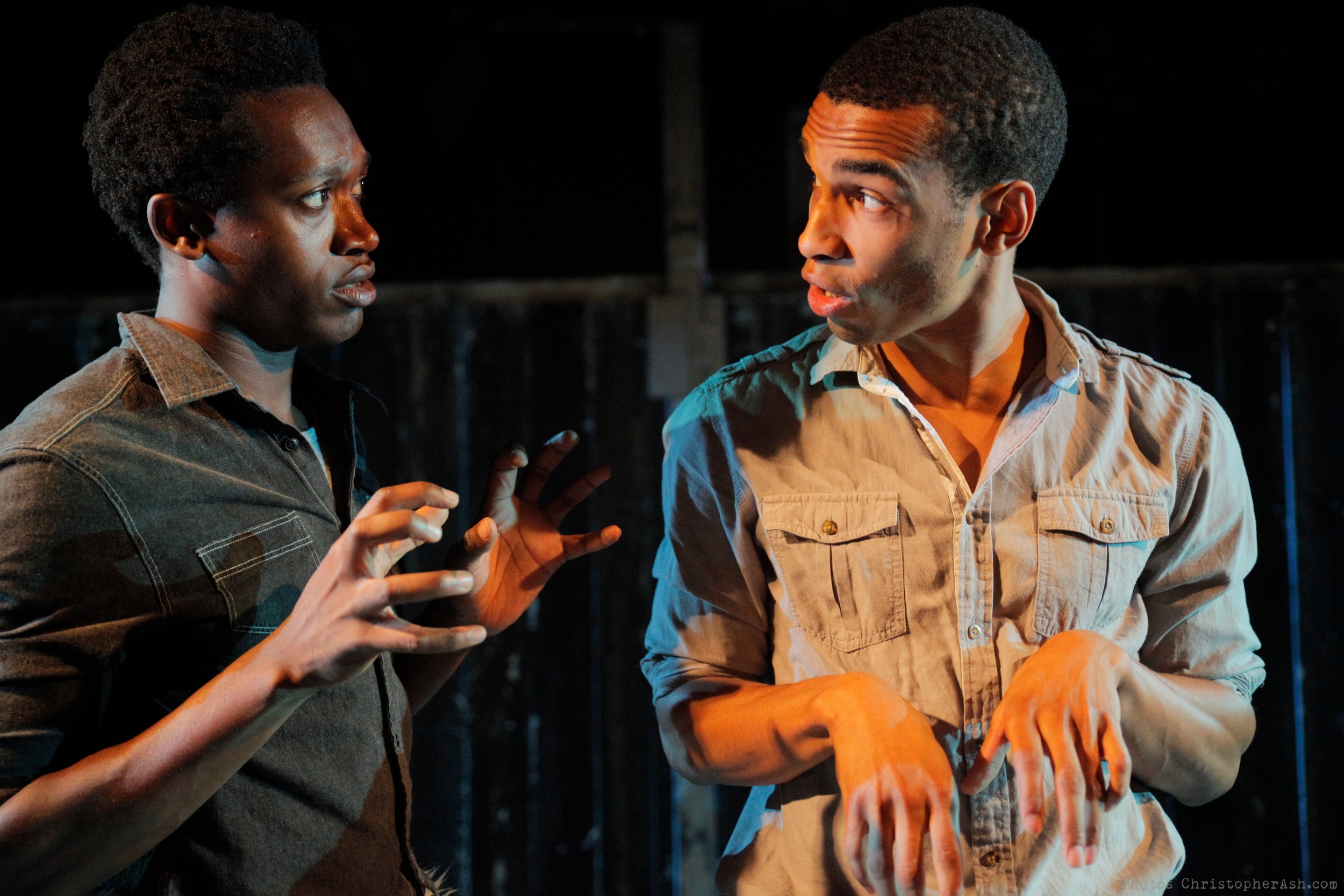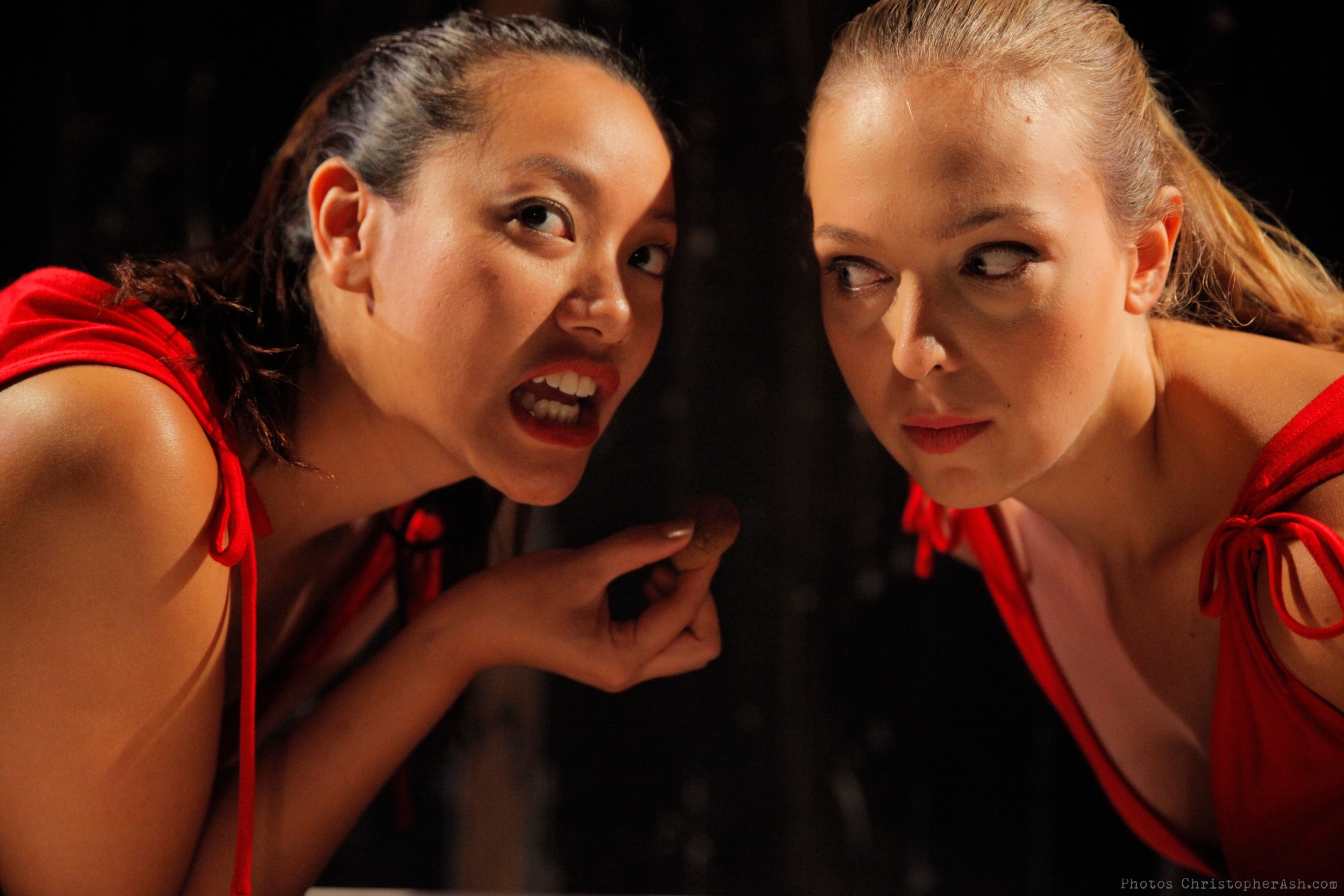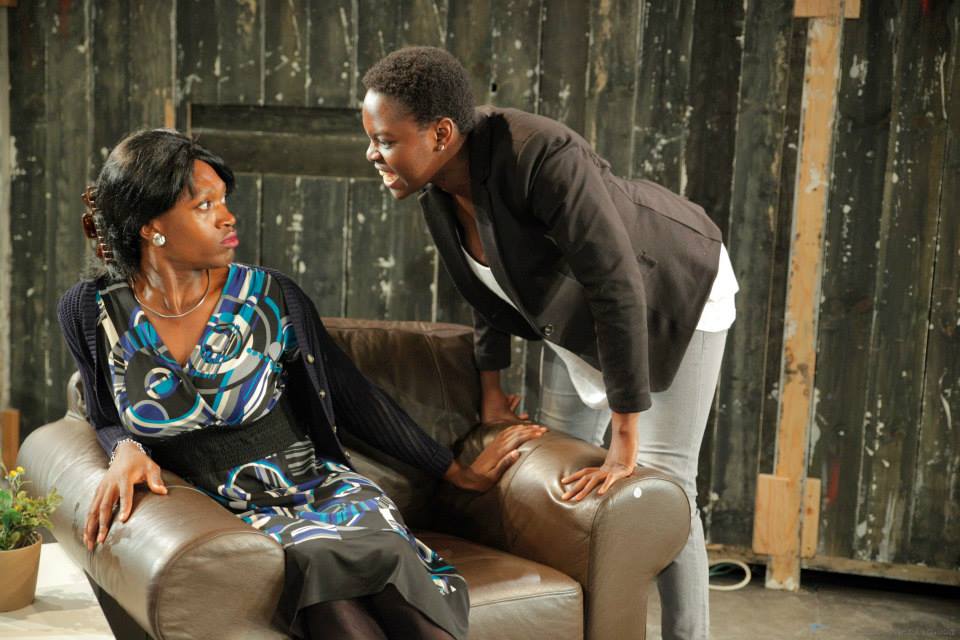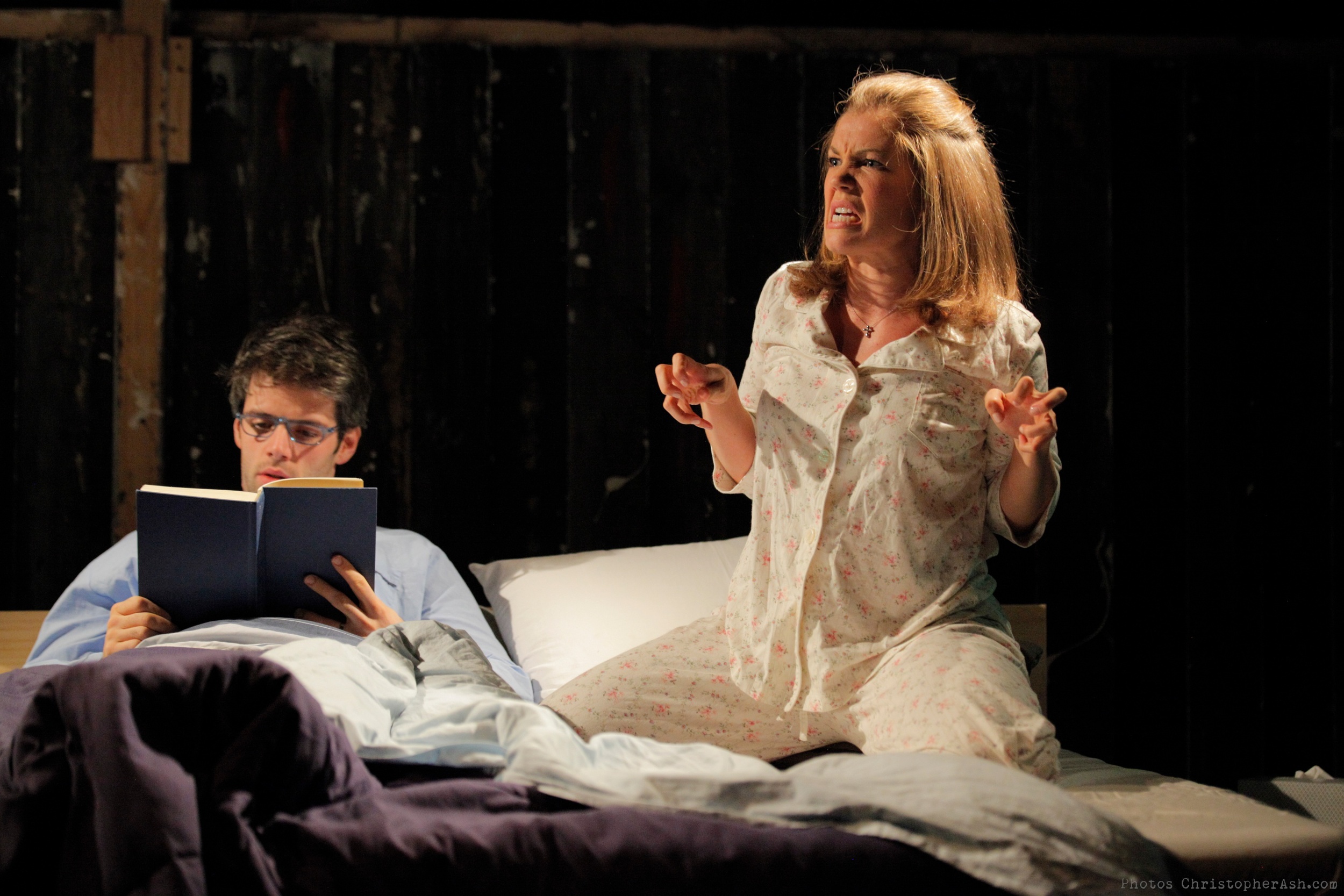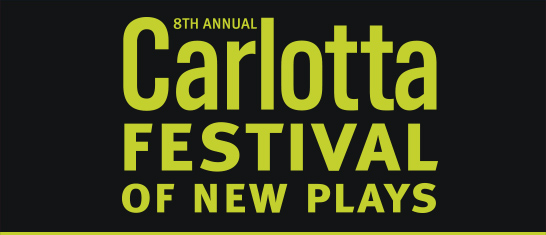The 40th anniversary Summer Cabaret closed this past weekend with a four-day festival of short plays. “Summer Shorts” offered two series of four plays each, all by former YSD students, including recent graduates Hansol Jung, Mary Laws, Kate Tarker (all class of 2014), Rolin Jones—most recently celebrated for These! Paper! Bullets! last season at the Yale Rep—MJ Kaufman, and A. Rey Pamatmat. In general, the Festival turned the Summer Cab—after a summer of mostly lengthy plays—back to the brevity for which the term-time Cab is justly celebrated. What the usual 50-70 minute running time of the Cabaret displays is that much can be done in a short time. Of the plays in the festival, only Hansol Jung’s Undesirables—with music by last year’s Co-Artistic Director Chris Bannow—is an excerpt from a longer work. The others are self-contained plays—from 10 minutes to over 30—that mostly showcase a comically dramatic situation (Rolin Jones’ Ron Bobby Had Too Big a Heart) and/or comic and bizarre exchanges between a small cast (Jones’ Another in a Long Line of Idiot Children; Mary Laws’ All Saints; MJ Kaufman’s Your Living Room is Full of Ghosts, and Jones’ The Mercury and the Magic). Kate Tarker’s M.A.H. [A Museum Play] is more developed, with a plot that unfolds using six chararcters, and a key setting—the Museum of the National Tragedy. A. Rey Pamatmat’s We Have Cookies, though a two-person play, has more of a developmental arc than the other plays with a cast of two or three. And Undesirables—with 8 cast members—is an introduction to a musical with themes of immigration, assimilation, and alienation in the U.S. The two series were well-balanced with perhaps Series A’s larger cast plays edging out Series B in memorability.
The overall effect of the Festival was like seeing a Cabaret semester—which usually consists of 8 or 9 plays—in miniature. So, let’s take each Series as a unit:
Series A
Kicking off the Festival, Ron Bobby Had Too Big a Heart (Rolin Jones, directed by Luke Harlan) is a quick study of two murderous Southern would-be prom queens (Annelise Lawson, Shaunette Renée Wilson) out to avenge their shattered dreams on a local rival (Jenelle Chu); Jones’ verbiage is sort of slang Southern Gothic and crackles with comic intensity. Little more than a bite-size bit of satire on the guns-not-hugs rationale of contemporary America, the play jump-started the festival with a jolt.
M.A.H. [A Museum Play] (Kate Tarker, directed by Jessica Holt) offers a bizarre cast of misfits with Maia, a Mexican woman (Jenelle Chu, from airy to fiery) and Heiner, a German journalist (Matt Raich, awkwardly precise, as only a German can be) waiting to see someone at the Museum of the National Tragedy where nerdish Ellen (Aaron Bartz) presides over a private institution seeking to commemorate “national tragedy” in both a specific and generic sense. As Ellen, Bartz turns in his funniest performance of the summer as the sort of person one once encountered on late-night local or cable television, a huckster of indifferent skill, smarts, and resources making the best of his personal obsessions. He’s served by Shelby (Ato Blankson-Wood, as flappable office drone) and is interviewed by Monika (Annelise Lawson, one-part femme fatale and two-parts Kommendant). Meanwhile, the highly affecting Pearl (Shaunette Renée Wilson, in gleeful Southern Gothic mode) lurks behind the scenes and has her own intimate manner of determining Maia’s suitability for the job. Tied into the theme of our national manner of exploiting our tragedies are themes of racial stereotypes and gay—particularly lesbian—bashing. More than a bit confusing at times, the production felt close to the slap-dash quality of the term-time Cab where student-generated works still finding their feet are common.
Then it’s back to Rolin Jones for more inspired words in a very static tableau, Another in a Long Line of Idiot Children (directed by Jessica Holt): Mother (Maura Hooper, flamboyantly drunk as a sort of bottle-blonde Morticia) chugs half liters of wine while waxing confidential—about family, fortunes, fate and the ghastly nature of life—to her brooding son (Matt Raich, seemingly bound in a beach chair and mostly non-committal), while Father (Julian Elijah Martinez, with hilariously frightening tremors and a vague air of acceptance) listens in whilst playing Solitaire. One assumes Jones knows well the targets he’s aiming for—venom enough is levied at them—but the play, essentially a long, rambling tour de force monologue, seems a mere exercise in characterization by caricature.
Finally, Excerpt from Undesirables (Book/Lyrics by Hansol Jung, music by Chris Bannow; directed by Luke Harlan), takes us back to Ellis Island where, arguably, most of us have ancestors who passed through on their way to becoming Americans for our sakes. In “The Layout” and “In America,” Jung and Bannow have their cast revisit the traditional tale of America’s welcoming arms by apprizing us of the situations of the unwelcome “undesirables” who met with rebuff, particularly immigrants from Asia who were not welcome at all, as well as those “deviates”—homosexuals, prostitutes, and others of the European demimonde—who might bring their “undesirable” habits to the New Land. With the brio of the “it’s not so bad if you can sing about it” logic that seems to underpin every musical addressing hardship themes, Undesirables intimates an interesting tale about its unusual inmates. The excerpt ended Series A on a high note with the entire Festival cast present on stage.
Series B
“Playing possum” generally equates with pretending to be dead or inert, but in Rolin Jones’ The Mercury and the Magic (directed by Jessica Holt), two opossums, Joe (Ato Blankson-Wood) and Mike (Julian Elijah Martinez) are anything but passive. They “own the road” and assert themselves by running out when cars come by, frightening the drivers (Matt Raich). Meanwhile, Joe is questioning the nature of opossum-hood, as, indeed, any mammal might. The skit has the feel of the kind of thing Saturday Night Live is famous for—comical “what-ifs” that kill time before something else happens.
What happens next is A. Rey Pamatmat’s We Have Cookies. Directed by Jessica Holt, the play is the centerpiece of Series B, its themes more sharply delineated than most of Series A. Iris (Jenelle Chu) is benign and gracious, only too happy to welcome Blink (Annelise Lawson) into a community that does, indeed, have cookies. The cookies, a fairly impressive pile, are in the center of the table that separates the two women. The repetitive ‘cookie monster’ noise that occurs every time one of them—usually Blink—takes a cookie gets a bit old, but its almost percussive punctuation serves the task of bringing us back again and again to the central matter: Blink’s attempt to come to terms with simple facts of life: some people have cookies and other people don’t; cookies do not grow on trees but must be extracted from those who are capable of making cookies though without the wherewithal to enjoy them; cookies, once you become fond of them and take them for granted, seem to justify activities that will cement one’s advantage—such as, eventually, physical struggles between Iris and Blink themselves. Part allegory, part blackout sketch, We Have Cookies puts its actors through their paces as they have to work in quick, structured segments and go from rational and meek to aggressive and, in Lawson’s case, autocratic and demanding, and childishly gluttonous. While perhaps a bit too obvious in its intentions, Pamatmat’s play offers a quick study of how resources—particularly luxuries—become defining and defensible for any privileged population.
MJ Kaufman’s Your Living Room is Full of Ghosts, directed by Luke Harlan, begins with an absurd premise: Mom (Ato Blankson-Wood) has taken to living in Ikea showrooms; her daughter (Shaunette Renée Wilson) visits and tries to get at what’s going on. Ostensibly a send-up of the model lives that the middle class try desperately to live (here, the black protagonists might add a further racial dimension to the dry aspiration to live surrounded by the simplicity of Scandinavian design), the play yokes in other aspects of dysfunction, as between mother and daughter and between mother and neighbor. The pay-off seems a bit flat and the real pleasure of the exchange is in watching Blankson-Wood’s cool and pragmatic mother, who may be mad, and Wilson’s irritable reactions, jumping on a couch or settling with deep suspicion into a big armchair.
Dysfunction of a much more hysterical register animates Mary Laws’ All Saints, directed by Luke Harlan. Here, a couple, Thomas (Aaron Bartz) and Joan (Maura Hooper), already settled into bed and about to set the alarm for the morrow, must come to grips with Joan’s announcement: she is an alligator. The meeting of domestic drama and absurdist comedy goes as far as it can go, with Hooper’s reasonableness gradually becoming more fierce and animalistic. As with Jones’ Idiot Children, the play requires a comic tour de force from Hooper, crawling the floor in her jammies and reaching, nonplussed, for straws as her patient husband—constantly underlining how “sturdy” Joan is—defeats each of her points. Could she be an alien? A glass of water? Anything but a human woman! Laws’ script toys with the kinds of transformations that magic realism—and, indeed, saints’ lives—hold to be possible, and moves toward a conclusion that’s willing to let symbol or enigma stand for resolution.
Summer Shorts: A Festival of New Voices ended the season with themes that find common cause with the full-length plays presented during the summer, where the banality of domestic life, the oddity of relationships, the efforts to remember and invent, and to live meaningful and authentic lives were handled with effects that come from satire, vaudeville, classic naturalism, thrillers and improv. As eclectic as such approaches may be, the Summer Cabaret cast rose to an impressive variety of roles and situations, making the case that “voices at the forefront of American theater” are nothing if not conscious of the tensions of our times. And kudos to the tech people—especially Scenic Design by Kevin Bret Klakouski and Costumes by Steven M. Rotramel—for the wherewithal to compress so many different shows into such a short compass.
Up soon: a preview of the first three shows of term-time Cabaret, led by Hugh Farrell, Tyler Kieffer, Will Rucker and Molly Hennighausen. For now, a fond farewell to the team of the Yale Summer Cabaret 2014, led by Co-Artistic Directors Jessica Holt and Luke Harlan, and Managing Directors Gretchen Wright and Sooyoung Hwang.
Yale Summer Cabaret Summer Shorts: A Festival of New Voices
Written by Rolin Jones; Hansol Jung and Chris Bannow; MJ Kaufman; Mary Laws; A Rey Pamatmat; Kate Tarker Directed by Luke Harlan; Jessica Holt
Cast: Aaron Bartz; Ato Blankson-Wood; Jenelle Chu; Maura Hooper; AnneLise Lawson; Julian Elijah Martinez; Matt Raich; Shaunette Renée Wilson
Production Team: Associate Scenic Designer: Kevin Bret Klakouski; Costume Designer: Steven M. Rotramel; Lighting Designer: Andrew F. Griffin; Sound Designer: Kate Marvin; Stage Manager/Series A: Will Rucker; Stage Manager/Series B: Avery Trunko; Photography: Christopher Ash
August 14-17, 2014
